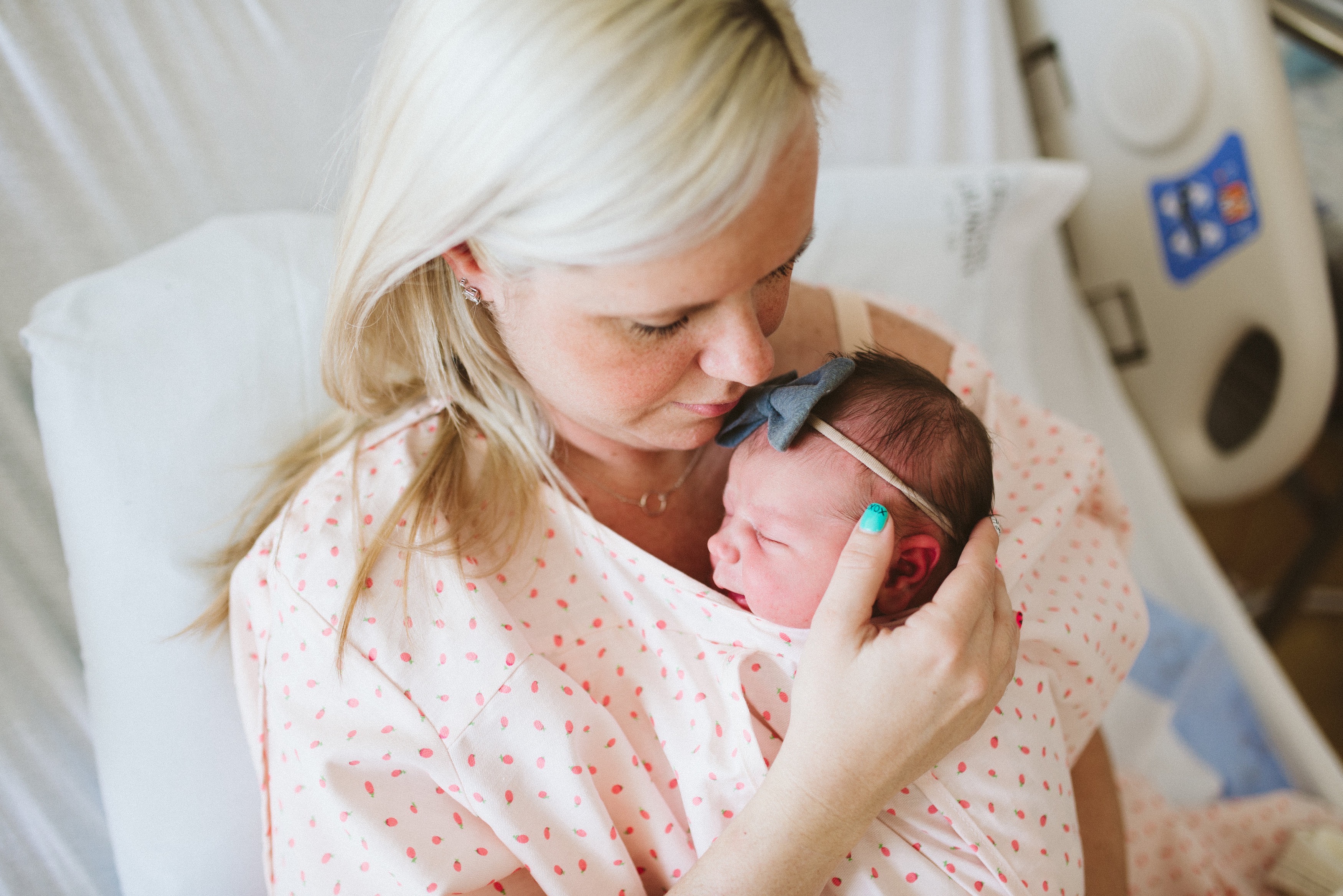
photo courtesy of Lindsey Shipley/Lactation Link
Your body is your baby’s first home, and this relationship doesn’t need to end just because he’s out of the womb. Now out in the world, your babe wants to spend all of his time on top of your body. This is where he first learns about scent, touch, sight, hearing, taste and trust, along with many other things. Skin to skin, also known as Kangaroo Care, is a way to maintain that unique closeness you and baby shared when he was in your womb.
Kangaroo care refers to the practice of holding your diapered babe—be he premature, full term or anytime during infancy—against your bare chest, with either a shirt or a blanket around the baby’s back to keep him warm. This snuggling of the infant against the body makes like a kangaroo’s pouch—hence the name, Kangaroo Care. Kangaroo Care can begin in most cases immediately after birth and can continue as long as you want to practice. There is no age at which skin to skin is no longer recommended.
Skin to skin contact has been demonstrated as key component to help a baby regulate his heart and breathing rate, maintain body temperature, gain weight, enhance his immune system, spend more time in deep, restful sleep, and while awake it can aid in more quiet and alert time, fewer crying hours and make him more amenable to breastfeeding.
Kangaroo Care helps mom as well, by reducing stress and with that lowering the risk of post partum depression. Skin to skin helps speed up your recovery time from labor and essentially creates a feeling of closeness between mama and babe. This close holding bond between baby and mother also helps to regulate a mother’s hormones, increase her levels of maternal oxytocin, and ultimately helps increase her milk supply.
Studies have shown that a newborn held skin to skin immediately after birth is twice as likely to breastfeed within the first hour than a swaddled newborn. On the other hand, a swaddled baby may become too sleepy and will not necessarily interact with his mama in a natural exchange of sensory information between mother and babe.
By employing Kangaroo Care, mothers will very likely experience a baby who will indicate when she is ready to feed and who will be more likely to breastfeed exclusively and longer. Because the baby is learning the habit of closeness to the mother, they likely will find it easier and be more inclined to latch on well and are less likely to cry. Contrarily, without repeated skin-to-skin contact, mothers may find breastfeeding more difficult and stressful than it should be.
In 2012, the United States Cochrane Center at the Johns Hopkins Bloomberg School of Public Health reviewed 34 studies involving 2,177 mothers and babies.
The review concluded that babies exposed to skin-to-skin contact interacted more with their mothers and cried less than babies receiving usual hospital care. The study showed that Kangaroo care practicing mothers were more likely to breastfeed in the first one to four months, and tended to breastfeed longer.
From my perspective, it’s an obvious choice and I recommend to all my clients to practice Kangaroo Care whenever you can with your little one, and the benefits will follow.



